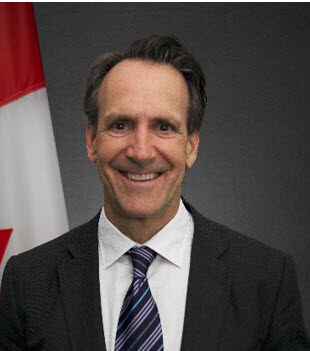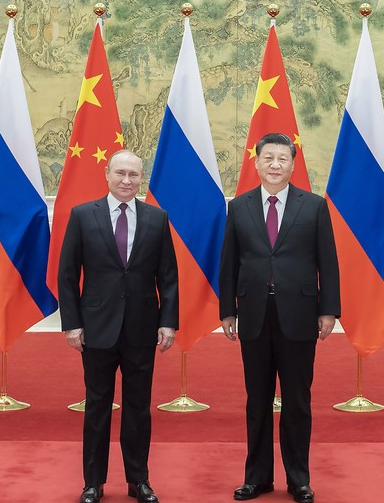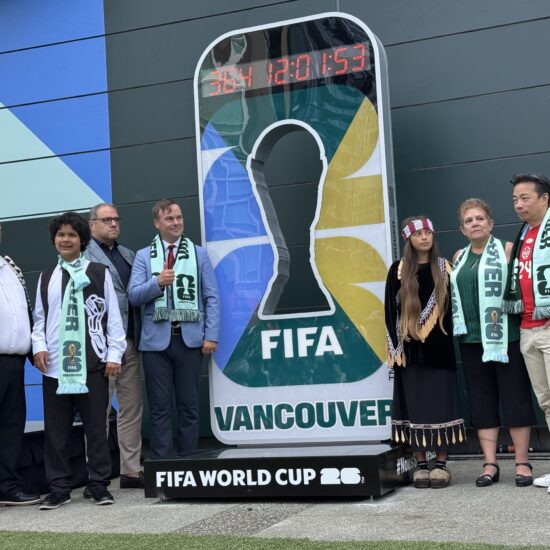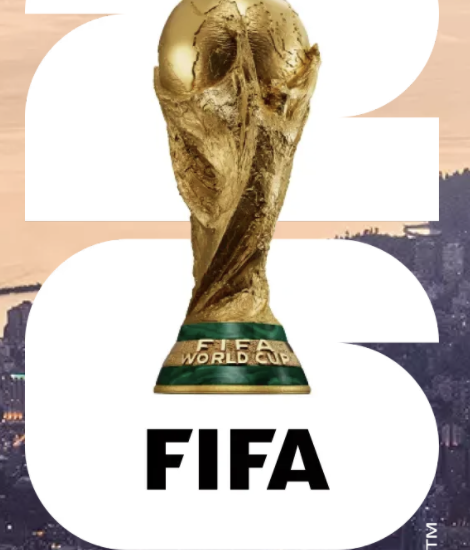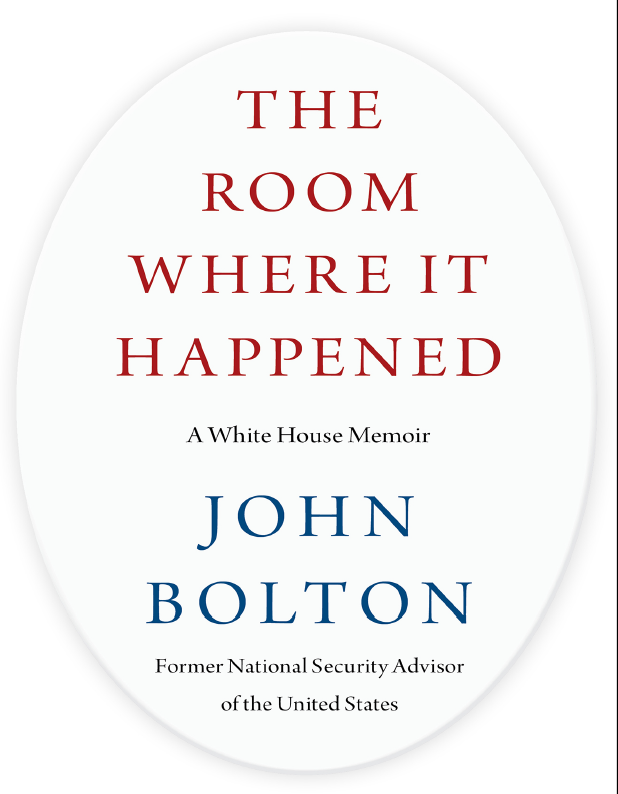
Bob Mackin
While U.S. President Donald Trump and Chinese counterpart Xi Jinping held a lengthy dinner in Buenos Aires at the G-20 summit in 2018, Canadian authorities in Vancouver arrested Meng Wanzhou, writes former national security adviser John Bolton.
In his book, “The Room Where it Happened: A White House Memoir” [Simon and Schuster], Bolton recounts that he had heard the day before that Meng might be arrested when she landed in Vancouver.
“Because this arrest was based on our case of financial fraud against Huawei for, among other things, concealing massive violations of our Iran sanctions, it struck me as straightforward. Things were busy in Buenos Aires, to say the least, and I had learned enough watching Trump with [Turkey’s] Erdogan to understand I needed to have all the facts in hand before I briefed Trump.”
According to Bolton, Trump raised Meng’s arrest at the Dec. 7 White House Christmas dinner and mentioned the pressure now on China.
Trump, always fond of nicknames, even had one for Meng, the daughter of Huawei founder and former People’s Liberation Army engineer Ren Zhengfei.
“He said to me across the table that we had just arrested ‘the Ivanka Trump of China.’ I came within an inch of saying, ‘I never knew Ivanka was a spy and a fraudster,’ but my automatic tongue-biting mechanism kicked in just in time. What Wall Street financier had given Trump that line? Or was it Kushner, who had been engaged in a mutual courtship on China matters with Henry Kissinger since the transition?” Bolton wrote.
Bolton also mentioned the hostage-taking of Canadians Michael Kovrig and Michael Spavor by China in retaliation for the Meng arrest and Canada’s weak response.
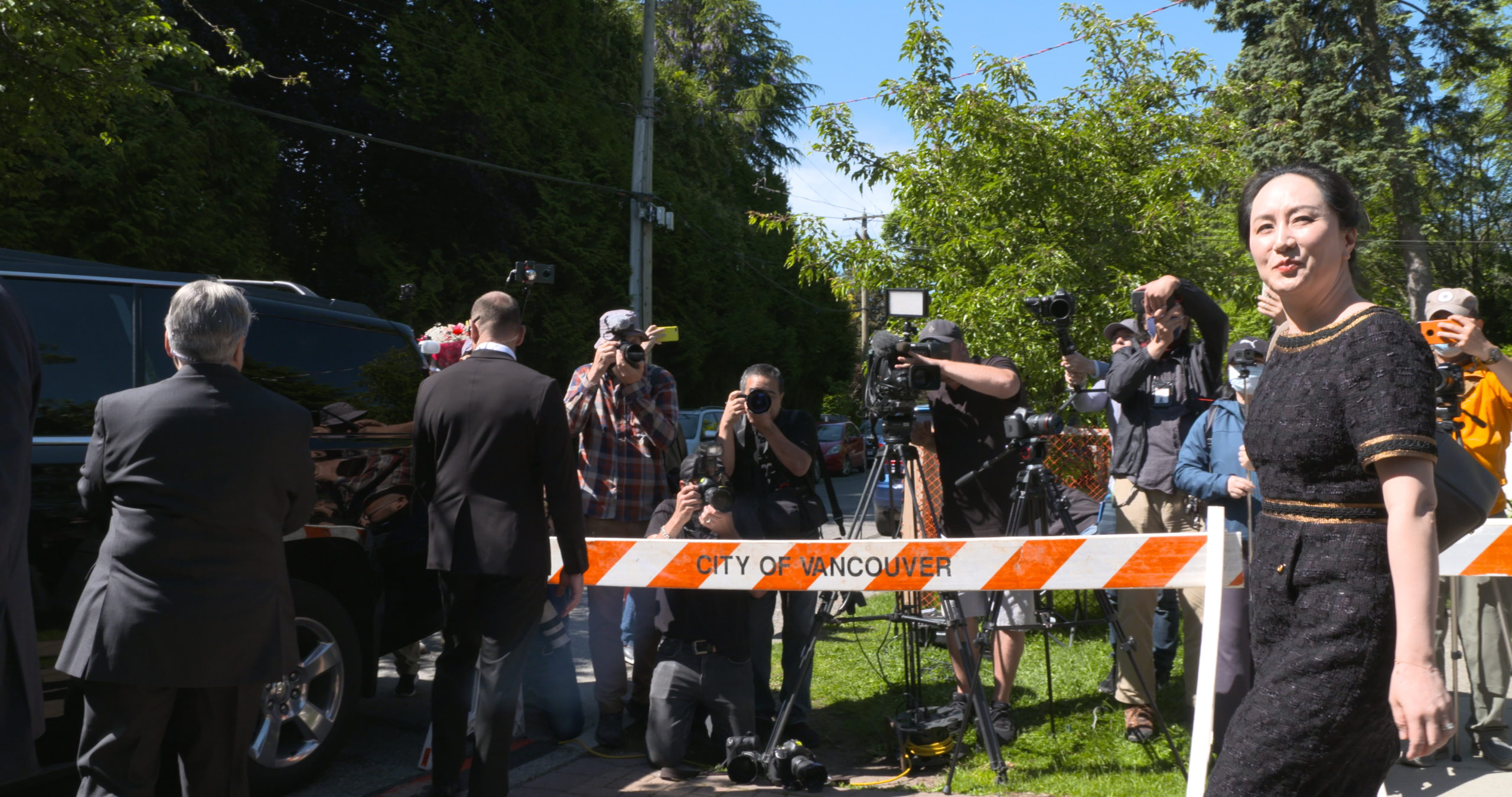
Meng Wanzhou leaves her Vancouver mansion on May 27. (@InaMitchellFilm)
“We had to admit we were all late to realize the full extent of Huawei’s strategy, but that was not an excuse to compound our earlier mistakes. Even as we discussed these issues, China was showing its teeth, unlawfully detaining Canadian citizens in China, just to show they could. Canada was under great domestic pressure, which [Justin] Trudeau was having difficulty resisting. Former Prime Minister Jean Chretien, never a friend of the U.S., was arguing that Canada should simply not abide by our extradition treaty. Pence, Pompeo, and I all urged Canada to stand firm, stressing we would support them every way we could, including directly raising with China the mistreatment of Canadian citizens. As we pointed out, this was the way China behaved even as some people continued to praise its ‘peaceful rise’ as a ‘responsible stakeholder.’ How would China act as it became dominant, if we let it? This is a national-security debate that will go on well into the future. Tying it to trade degrades our position both in trade and in national security.”
Bolton further wrote that he disagreed with Trump about Huawei. While Trump called it China’s biggest telecom, Bolton considered it arm of Chinese intelligence services. He complained that Trump was appeasing China and wondered what it would take to get him back on a more aggressive approach.
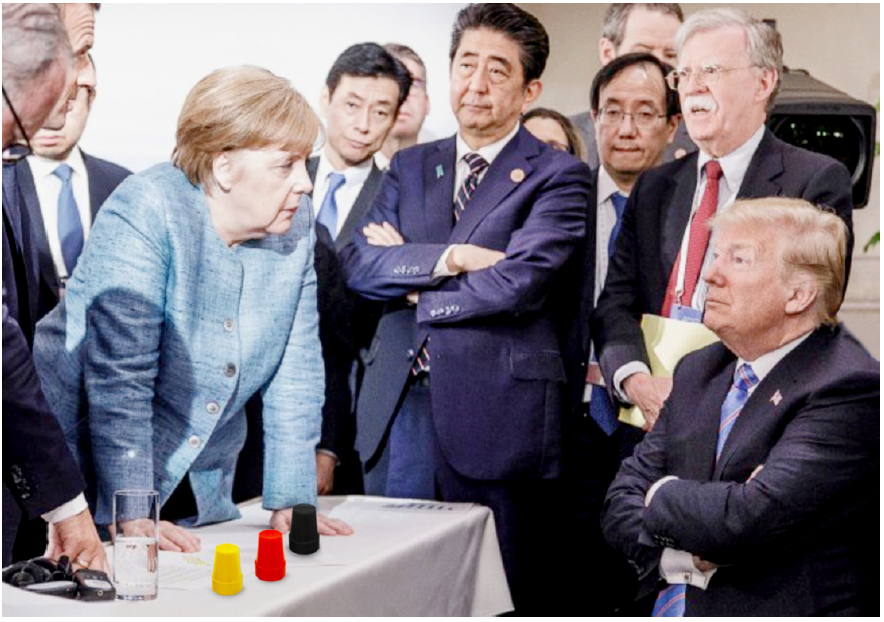
John Bolton, beside Donald Trump. (The Room Where It Happened/Simon & Schuster)
“Trump made matters worse on several occasions by implying that Huawei also could be simply another U.S. bargaining chip in the trade negotiations, ignoring both the significance of the criminal case and also the far larger threat Huawei posed to the security of fifth-generation (or 5G) telecom systems worldwide. This is what the black-hole-of-trade phenomenon did in twisting all other issues around Trump’s fascination with a big trade deal. Huawei posed enormous national-security issues, many of which we could only allude to in public statements.”
Bolton alluded to friction inside the administration, with economic policy advisers considering Huawei a competitor, not a security threat. He said he also warned Trump of the debt trap of Xi’s Belt and Road Initiative, which aimed to hook Third World Nations with attractive credit for major infrastructure projects.
Other world leaders, such as Japan’s Prime Minister Shinzo Abe, took a hawkish view of China, Bolton wrote.
“Abe encouraged Trump to maintain U.S. -Japan unity against China, and much more. This was how to conduct a strategic dialogue with a close ally. Australia’s Prime Minister Scott Morrison was also clear-eyed, seeing Huawei pretty much the way I did, and New Zealand also took a surprisingly but gratifyingly hard line.”
When Xi and Trump spoke by phone on June 18, 2019, Bolton wrote that “Xi pressed hard on Huawei.”
“Trump repeated his point that Huawei could be part of the trade deal, along with all of the other factors being discussed. Xi warned that, if not handled properly, Huawei would harm the overall bilateral relationship. In an amazing display of chutzpah, Xi described Huawei as an outstanding private Chinese company, having important relations with Qualcomm and Intel. Xi wanted the ban on Huawei lifted, and said he wanted to work jointly with Trump personally on the issue, and Trump seemed amenable. He tweeted his delight at the call shortly after the two leaders hung up.”
Bolton wrote that he briefed Treasury Secretary Steve Mnuchin later and that Mnuchin said the president needed to be protected “on the Huawei stuff.”
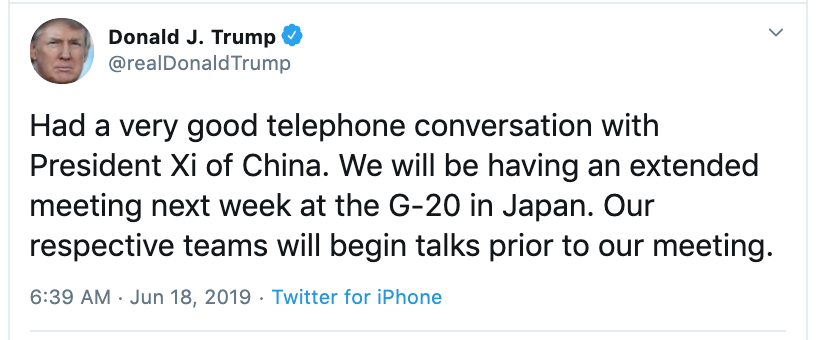
Trump’s post-call Tweet.
“People thought he was trading national security for trade on ZTE, and if we allow him to do it again on Huawei, we’ll get the same kind of backlash, or worse.’ That was true then and remains true today.”
Bolton was Trump’s national security advisor for almost a year-and-a-half until last September. On June 20, U.S. District Judge Royce Lamberth rejected the White House bid to stop publication of Bolton’s book on national security grounds. The Trump administration argued it contains classified information.
Meng lost her first bid to thwart U.S. extradition proceedings on May 27, when a B.C. Supreme Court judge ruled that the U.S. fraud charges are compatible with Canadian law, also known as double-criminality. A case management conference on June 23 in Vancouver is expected to set the schedule for the next phase of the extradition process.
Bolton’s book could become part of the proceedings, because Meng’s lawyers claim she is the victim of political interference by the White House.
Meng lives under a court-ordered curfew with round-the-clock security guards at a $13 million mansion on the same block as the U.S. Consul mansion.
Support theBreaker.news for as low as $2 a month on Patreon. Find out how. Click here.






